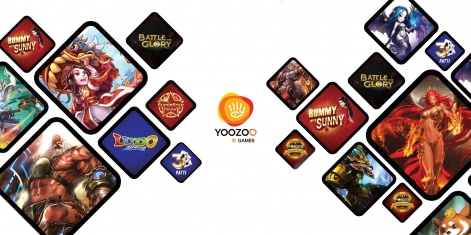The games industry plays host to a colourful cast of diverse individuals, from artists and coders to narrative designers and studio heads.
The skills to pull off these roles, however, are complex and differing, with each position requiring mastery in its field – especially in these complex times we are all living through at the minute.
To highlight some of the brilliant work that goes on behind the scenes as well as how employees around the world are adapting to the life of remote work, PocketGamer.biz is reaching out to the individuals who make up the games industry in our Jobs in Games: Remote Working series.
This week we spoke with Yoozoo Games narrative designer Dylan Coyle.
PocketGamer.biz: Can you tell us about your current role and what it entails?
Dylan Coyle: I am a narrative designer at Yoozoo Games’ overseas publishing department. I get brought in early to remake the world, characters, and stories for the games which we are planning to publish internationally.
We’re set to publish more original in-house games soon, so I look forward to having a bigger role in the design process.
How did you first get into games and how did you progress into this role?
I can’t remember a time without games, as early back as playing poker with my grandparents, Atari with my Dad, and chess with my Mom.
I fell in love with RPGs after finding some Tunnels and Trolls books from the thrift store. One of my favourite things was building my own campaign worlds and being the dungeon master.
To write for a global audience today, I would recommend learning more languages, getting out of the US, and seeing the world.Dylan Coyle
When Magic the Gathering came out, it was like the holy grail of what I wanted to make, though I didn’t like how addictive it was and quit playing to make a band in high school.
After a sprawling 10-year campaign with a good friend, we made our own card game together. We assumed Kickstarter was the best place for half-finished games to get funding to get it over the line but in the end, we failed miserably.
I moved to China many years ago and continued to make games. Eventually, I found a local publisher to help with my first board game. After that, I felt had the experience needed to work in a games company like Yoozoo.
What did you study (if anything) to get your role? What courses would you advise for aspiring professionals in the area?
I studied strategy and global economics at Yonsei in Seoul as well as storytelling at San Francisco State University – the screenwriting classes blew my mind. As a kid, I thought creativity and structure were polar opposites but learning structure and the craft makes communicating all the ideas in your head much smoother.
To write for a global audience today, I would recommend learning more languages, getting out of the US, and seeing the world. In the US, we are taught to have a very myopic and polarised viewpoint, so living abroad can help your writing become more mature and futureproof.
Do you think there are any misconceptions, public or professional, surrounding your area of expertise?
I think mobile games get discounted as a platform for rich storytelling, while the console market is praised for the triple-A Hollywood movie-style stories, and PC the same for quirky indie games.
However, I believe mobile has the ability to give you these little moments that make-up life and specifically, it's great for non-linear endless story worlds.

Another misconception is that working in China is gruelling. – and it’s easy to expect it to be worse overseas, but as far as I’ve seen the work hours are fair, the expectations are clear, weekends and family time are respected, medical care is great and the cost of living here is low.
Sure, there is still crunch, yet the company works hard to ensure we don’t ourselves burn out and the quality work stays high.
What advice do you have for someone looking for a job in this profession?
Start somewhere small and iterate quickly. I began making tabletop games for fun. I used ugly art, playtested every other day, and made a new game almost every week.
So, when my old roommate said that his company was hiring, I was able to walk in with a portfolio and the confidence of having made games for years. If you can show a firm that you can produce good quality and quantity consistently, you're valuable.
How did the shift from office to remote working impact your role, if at all?
There was a very minimal impact. One of the advantages of working in the technology industry is that we have lots of bright people who are able to implement new systems at short notice. We were thankfully given all the support we needed.
The interesting thing is that I was effectively onboarded during the lockdown, so I met most of my teammates via Zoom and DingTalk (the Chinese version of Slack) before meeting them all in real life.
What did your typical day look like when working remotely and what does that look like now back in the office?
When I first came to the Shanghai office, it was silent. We wore masks all day, texted one another instead of talking and ate lunch alone at our desks. I kept my head down and did my work.
When I first came to the Shanghai office, it was silent. We wore masks all day, texted one another instead of talking and ate lunch alone at our desks.Dylan Coyle
Most people here in China are back to office-working, so my current routine follows the new normal such as temperature checks at the subway on top of temperature and post-quarantine QR code check at the office entrance.
Masks are common but we can talk to our teammates maskless now. The company cafeteria and gym are open in one or two hours blocks and cleaned in-between. On the weekend, my wife and I travel locally as Shanghai has tons of parks, museums, and neighbourhoods we never took the time to enjoy before.
What do you think are the biggest advantages and disadvantages of remote working?
It really depends on your role and the team dynamic. I think individual productivity can rocket when all of the office distractions are taken away. Also, I really enjoyed not having to commute, though I think it is very hard to replicate the creative vibes of team meetings.
Is there anything you wish you had known before moving to remote working?
I wish I knew how short the quarantine would have been in China and that I wouldn’t have time to learn everything I wanted to learn in a short time.
I probably should have spent more time writing instead of scrambling to learn more skills. If/when the next remote working opportunity arises, I really need to finish some epic projects.
Do you have any advice for others who are struggling to adjust to remote work?
I was given a pdf book called ‘Never Gymless’ when I first left the US. Staying in shape while working remotely was critical for my sanity. Also, it’s easy to get sucked into work. People can fade away unless you make an effort to stay connected. If you can think of people who miss you, give them a call right now, you’ll thank yourself later.

Lastly, be aware of the effects of solipsism. Life starts to get repetitive and some people say it can feel like a dream or computer simulation. People can feel like other people don’t have feelings or even exist.
It’s a deep scary psychotic spiral that is easy to slip into and hard to crawl out of. The US is confronting that empathy crisis now, and this state of solipsism can only make it worse.
If you were given the choice, would you prefer to continue working remotely or go back to working in an office?
Working with multiple big teams for mobile games is liberating, which I enjoy, so for that reason, I’d choose the office. I miss the freedom of working remotely, but I don’t miss the isolation I had before the pandemic.

















